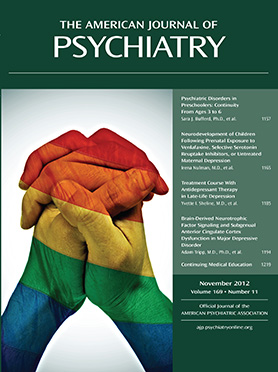Goodbye to the Handwritten Note
Yesterday, as I spoke to each patient in my office, I looked up often from my sheet to maintain eye contact and mindfulness. At the same time I crafted succinct and precise notes with pen on paper, taking pride in the efficiency of sharing insights, and scribing within the “units” of time. My pen advanced with ease, sentences flowed rhythmically, like ripples in the stream, one word linked to the next, fluently and wisely—and the progress note was done: full bodied, with substance, poetic license, and at times a sketch of an outrageous hairdo or clever headgear. All this while the patient and I interacted.
Today, with the descent into electronic health records (EHRs) I found myself huddled over the laptop, which with its many electric cords was placed on a table, now between my patient and me. My fingertips on the keyboard, I began the session with the chief complaint. I started typing immediately so I might, with luck and grit, attend to every assigned patient.
As the minutes passed, I was less efficient in the arts of conversing earnestly and creating the note in the genuine style and the high caliber I had practiced until yesterday. The typed product lacked spunk and was fragmented, denuded, hidden in some maze, assembled under the distraction of feeding the computer pellets of self-prescribed foods.
Having long worked in mental health agencies that had to delay the switch to electronic notes, I escaped the imperative of EHR for many years. This critical step into the world of medical technology required a dramatic shift in algorithmic thought; a shrill change from “automatic” processing, to a somewhat tedious mechanical data entry into an electronic format.
So, as patients’ tender complaints grabbed my attention, as quickly, my concentration shifted to the screen and my fingertips juggled with the keyboard. In this manner I typed phrase after phrase into the laptop in pursuit of harmony. I missed my handwritten note and the easy thought process.
Do not pity me as computer-illiterate or computer-phobic. Do not suggest I throw out the bullet-proof red-jacket PDR either and simply retire or concentrate on bridge, IRAs, or the grandchildren. Instead, join me in this farewell to the handwritten note, in a goodbye as intense as when an organic book with its pleasures of touch and smell is rejected for the Kindle.
Certainly I’m not alone in this attachment to our written reports. Ponder the unique style and spirit of the old-fashioned black-pen progress notes that we used to write; compare these with computerized entries of hypnotic repetitions from recent visits, conflated, cut, pasted, or copied through Microsoft’s magic. Then hunt through each line. But wherein lies the soul of the message in this EHR maze?
And yet—why such angst about EHR?
It’s not the mechanics of typing that hinders me: I type, not with one or two fast fingers, but with 10 fingers at a speed quite acceptable for my personal needs, which unfortunately delivers less productivity than required by clinic finances. Furthermore, this halting pace will surely increase the restlessness and agitation of many fragile persons who usually permit me less than 6 minutes—who order me, as they enter the office, to hurry with my “stupid” questions, so they can enjoy a smoke in peace outside.
It’s not even the strain upon the eyes that I decry; not the tingling wrists that suffer the clicks, toggles, and scrolls; not the aching back or the tense neck; not the inevitability of sitting sedentary in the chair for more hours than I care.
It is the altered relationship of the dyad of the patient and me, turned into a triad with an interfering third presence. Yesterday, Ms. A and I interacted and we spoke in ease, my hand was the agile reporter for her history; I looked at her intently, and my attention was all hers. Today, we are a triad. Ms. A watches as the keyboard gobbles my clicks. She dozes. She speaks less while I scan the screen. She waits for my attention to return to her. She says she does not want to distract me. Meanwhile my brain sifts words, crisscrosses patterns, condenses ideas, and spins from left brain to right brain and back again, censoring, deleting—instead of merely calling on the “automatic” scribe of decades to spill out the intrepid handwritten note of subtlety, worth, and praise.
Before me sits not one but two patients: both await my engagement. My flesh-and-blood patient needs my relaxed body language, communication, empathy, and eyes to catch the other’s sadness, twinkle, or ire. The accessory Being, this laptop, extracts with sterile authority and demands I click in format and sequence before accepting our clinical data.
I was not alone during this foray into the switch to EHRs. The patients before me were compassionate and curious: empathic about the technical changes the clinic doctors had to make for their care, a sort of upgrade in their treatment status, and also curious about the fate of the thick charts that lay on my adjacent table, green tomes that had been a reservoir of their precious life histories.
My next patient, Ms. B, asked why, I, her psychiatrist, now typed so much “stuff” and why a specialist had not typed it in before her visit. She wanted me to just talk more to her.
A poignant query came from Mr. C, usually quite a chatty person, until today: “Doc, is this good for me?”
“Yes,” I answered with a smile.
He would not know about my nostalgia and angst. Nor the arduous process and burden of going paperless, and yet nurturing mindfulness of the patient.



